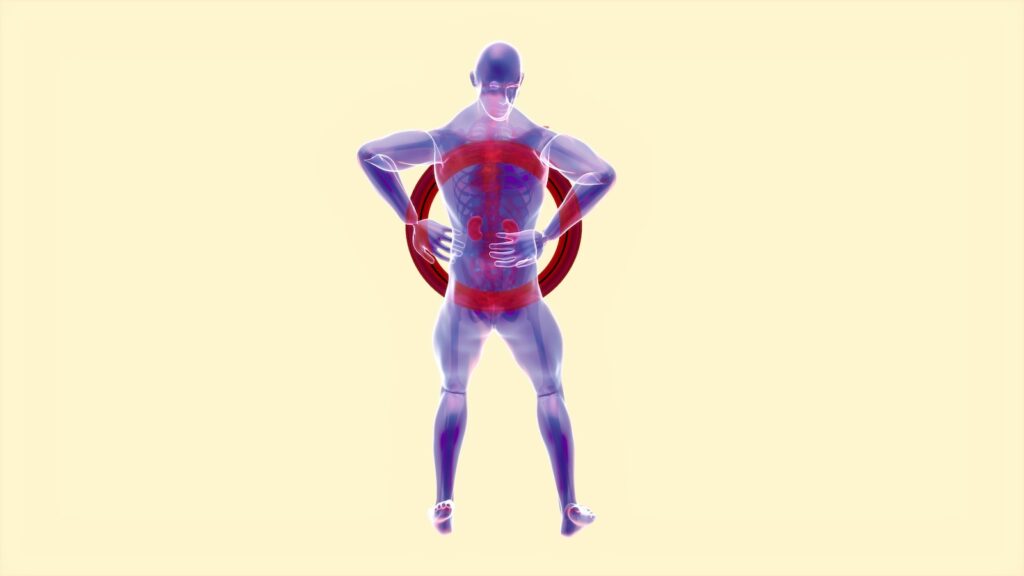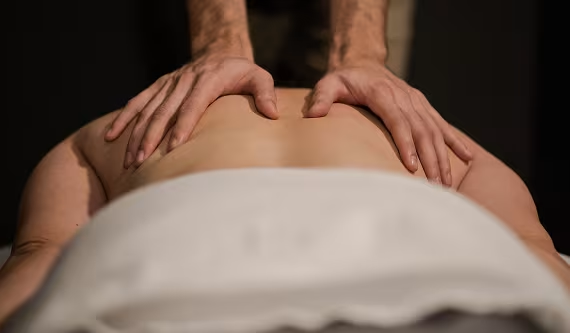Symptom – Are you experiencing Hip Muscle Pain?
Hip muscle pain can be caused by a variety of factors, including overuse, injury, or underlying medical conditions. Some common causes of hip muscle pain include:
- Strains or sprains: These injuries occur when the muscles or ligaments in the hip are stretched or torn.
- Tendinitis: This is an inflammation of the tendons, which are the fibrous cords that connect muscles to bones. Tendinitis can occur in the hip muscles, such as the iliotibial band or the hip flexors.
- Bursitis: This is an inflammation of the bursae, which are small fluid-filled sacs that cushion and lubricate the joints. Bursitis can occur in the hip, causing pain in the muscles surrounding the joint.
- Osteoarthritis: This is a degenerative joint disease that causes the cartilage in the joints to wear away. It can cause pain and stiffness in the hip muscles.
If you are experiencing hip muscle pain, it is important to see a healthcare provider for a proper diagnosis and treatment plan. Treatment options may include rest, physical therapy, medication, or surgery, depending on the underlying cause of the pain.
What causes Hip Muscle Pain?
There are several possible causes of hip muscle pain, including:
- Overuse: Repeated strain on the hip muscles can cause them to become sore and inflamed. This is common in people who engage in activities that involve a lot of running or jumping, such as dancers or athletes.
- Injury: A direct injury to the hip muscles, such as a strain or sprain, can cause pain. This type of injury is often caused by a fall or an awkward movement.
- Medical conditions: Certain medical conditions, such as osteoarthritis, bursitis, and tendinitis, can cause hip muscle pain.
- Poor posture: Poor posture can place extra strain on the hip muscles, leading to pain and discomfort.
- Aging: As we age, our muscles naturally become weaker and more prone to injury. This can lead to hip muscle pain in older adults.
It is important to see a healthcare provider for a proper diagnosis and treatment plan if you are experiencing hip muscle pain. They can help determine the underlying cause of your pain and recommend appropriate treatment options.
How to treat your Hip Muscle Pain
Treatment for hip muscle pain will depend on the underlying cause of the pain. Some common treatment options include:
- Rest: Resting the affected muscle can help reduce inflammation and allow it to heal. This may involve avoiding certain activities or using crutches to take weight off the affected hip.
- Ice: Applying ice to the affected muscle can help reduce inflammation and numb the pain. Ice should be applied for 15-20 minutes at a time, several times a day.
- Heat: Applying heat to the affected muscle can help relax the muscle and increase blood flow, which may reduce pain. Heat can be applied using a heating pad, hot water bottle, or warm towel.
- Pain medication: Over-the-counter pain medications, such as acetaminophen or ibuprofen, can help reduce pain and inflammation. It is important to follow the instructions on the label and not exceed the recommended dosage.
- Physical therapy: A physical therapist can teach you stretches and exercises to strengthen the affected muscle and improve flexibility. This can help reduce pain and improve function.
- Surgery: In some cases, surgery may be necessary to treat hip muscle pain. This may involve repairing or reconstructing the affected muscle or removing damaged tissue.
It is important to see a healthcare provider for a proper diagnosis and treatment plan if you are experiencing hip muscle pain. They can help determine the underlying cause of your pain and recommend appropriate treatment options.





